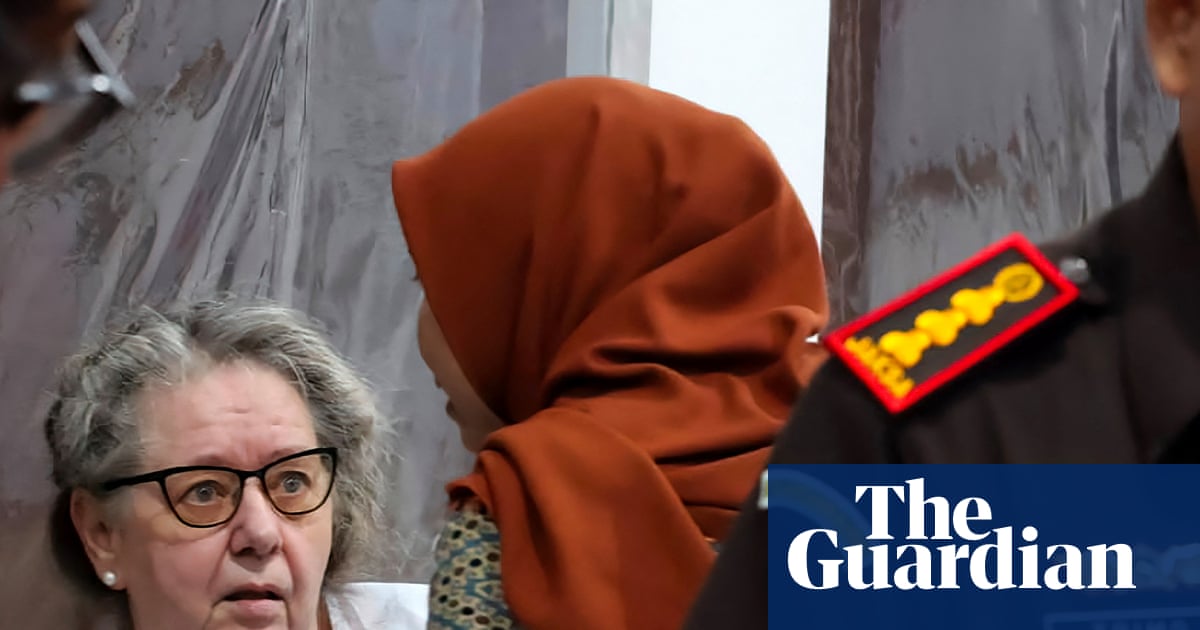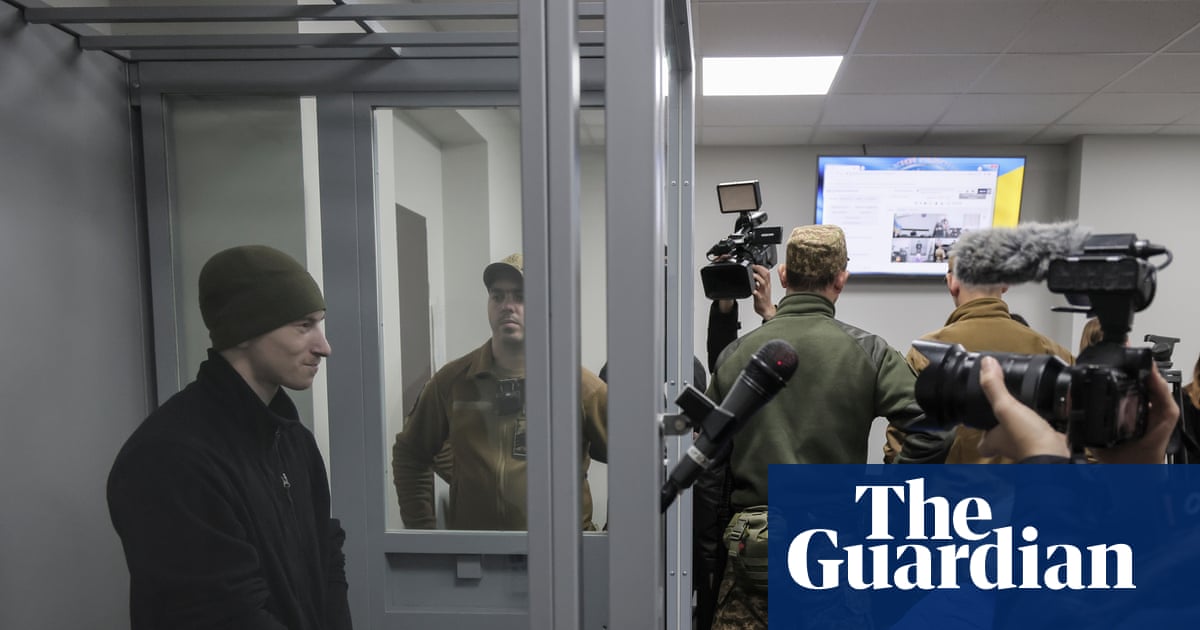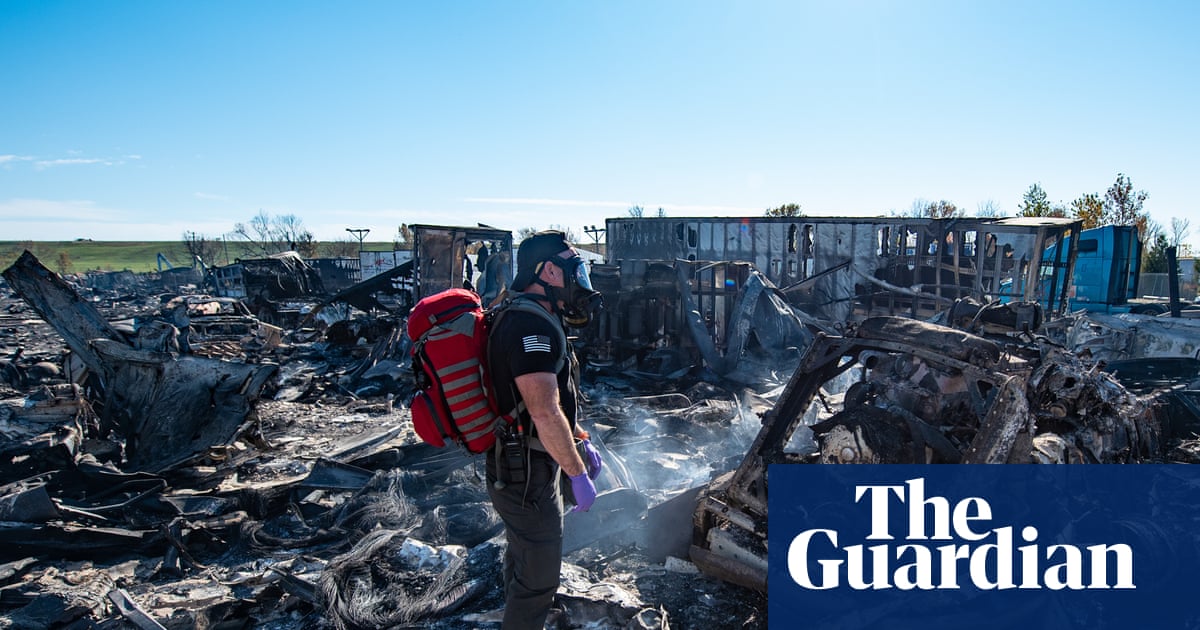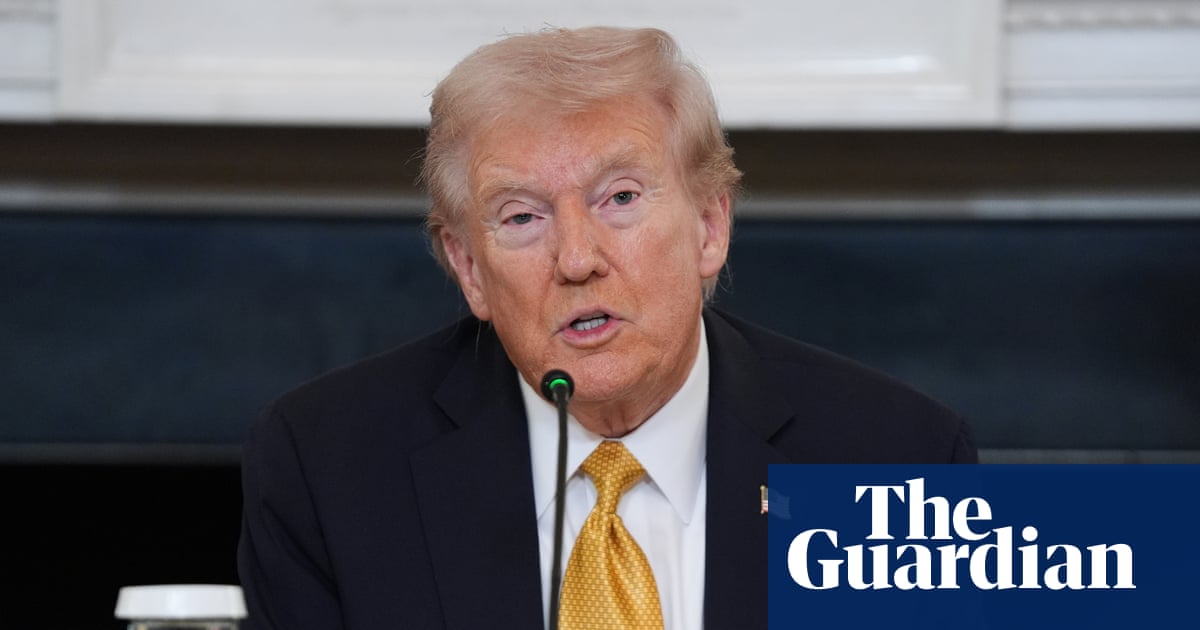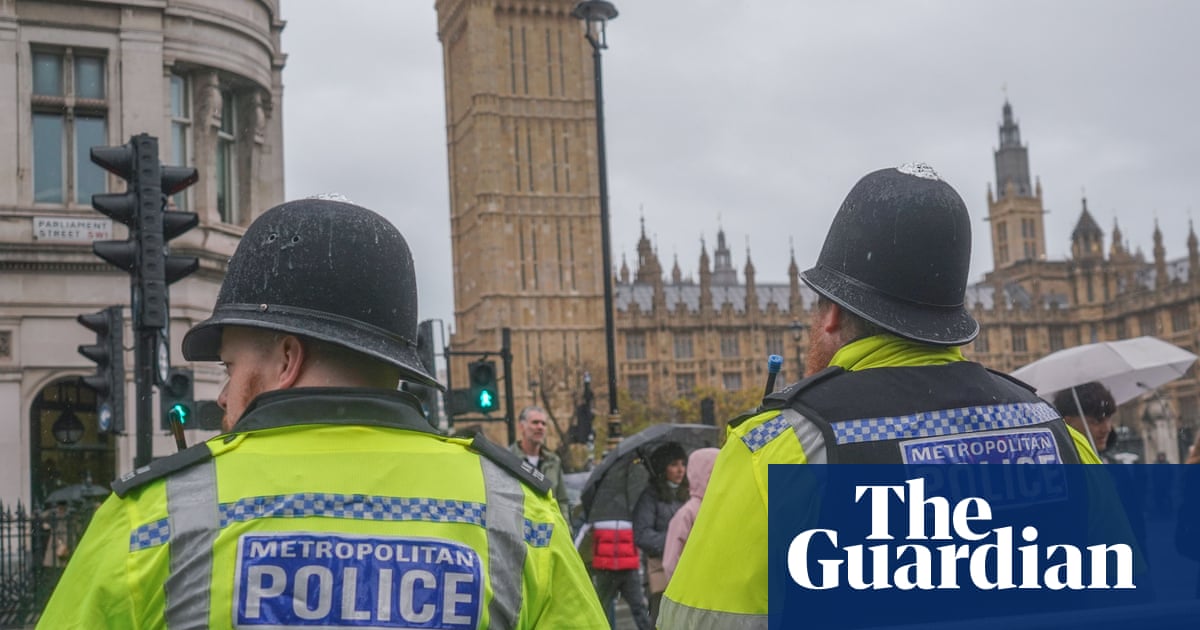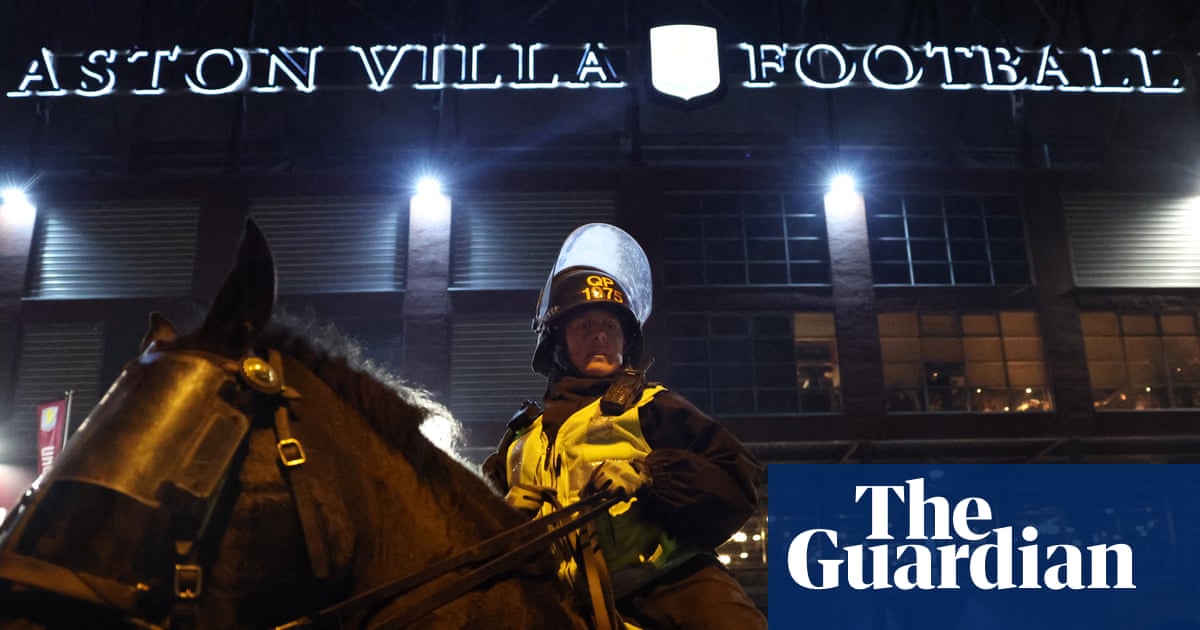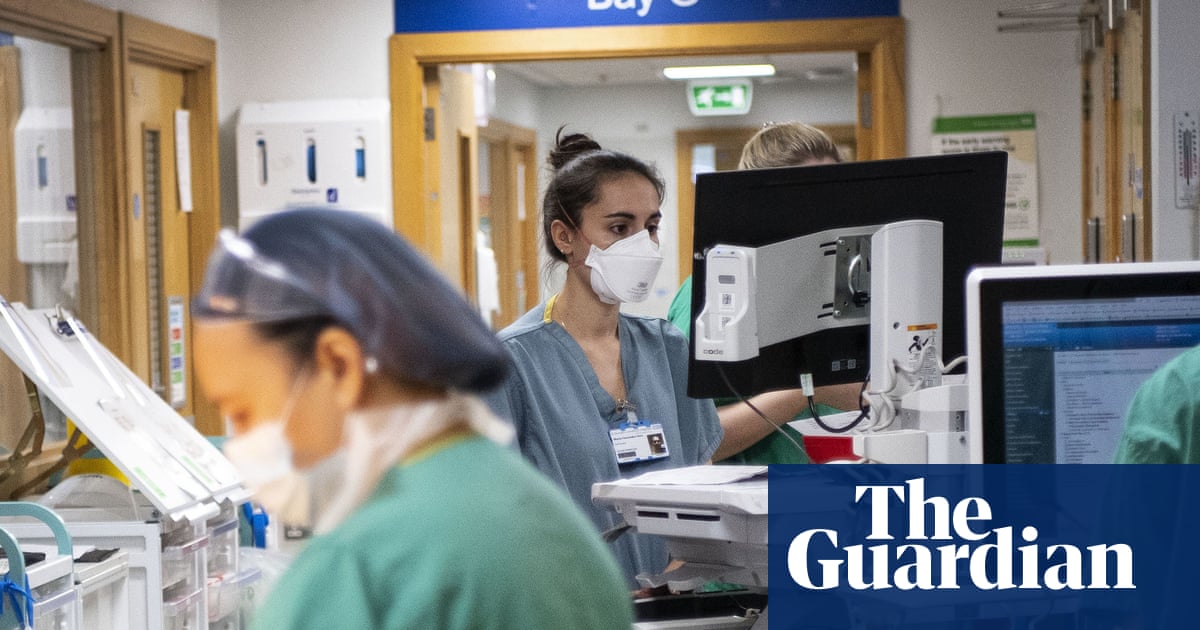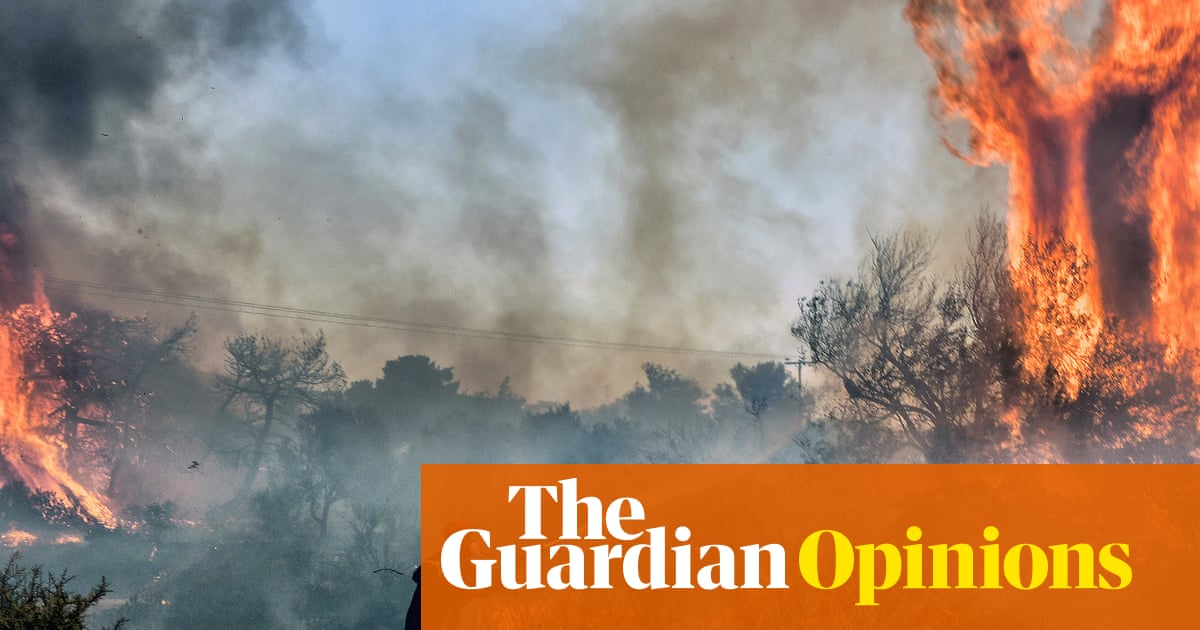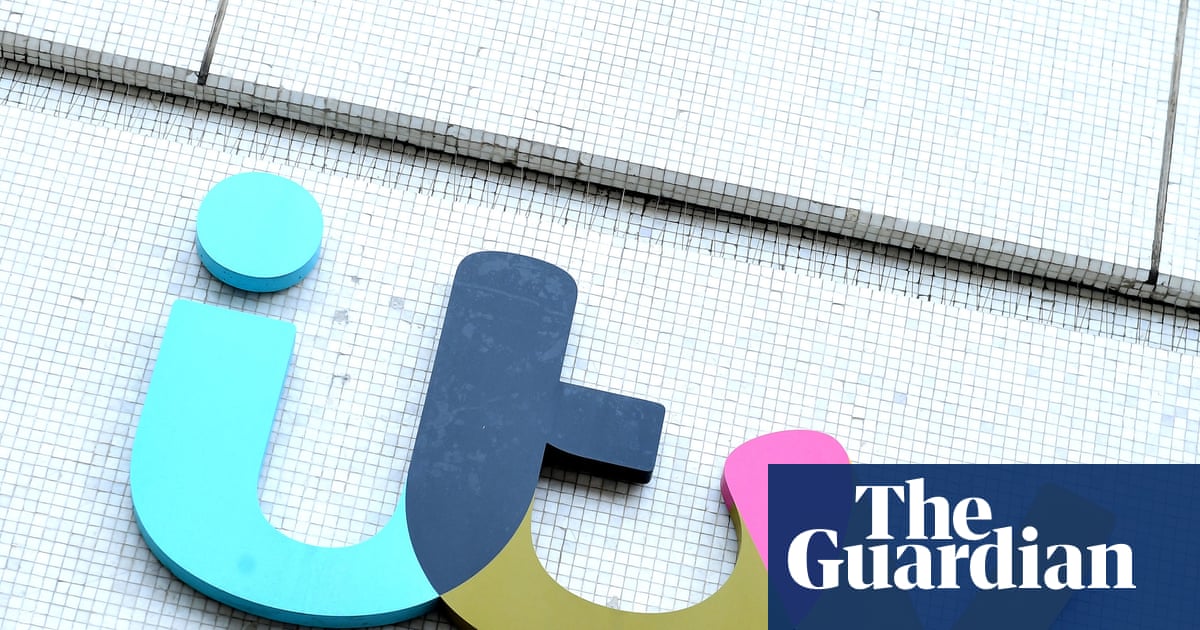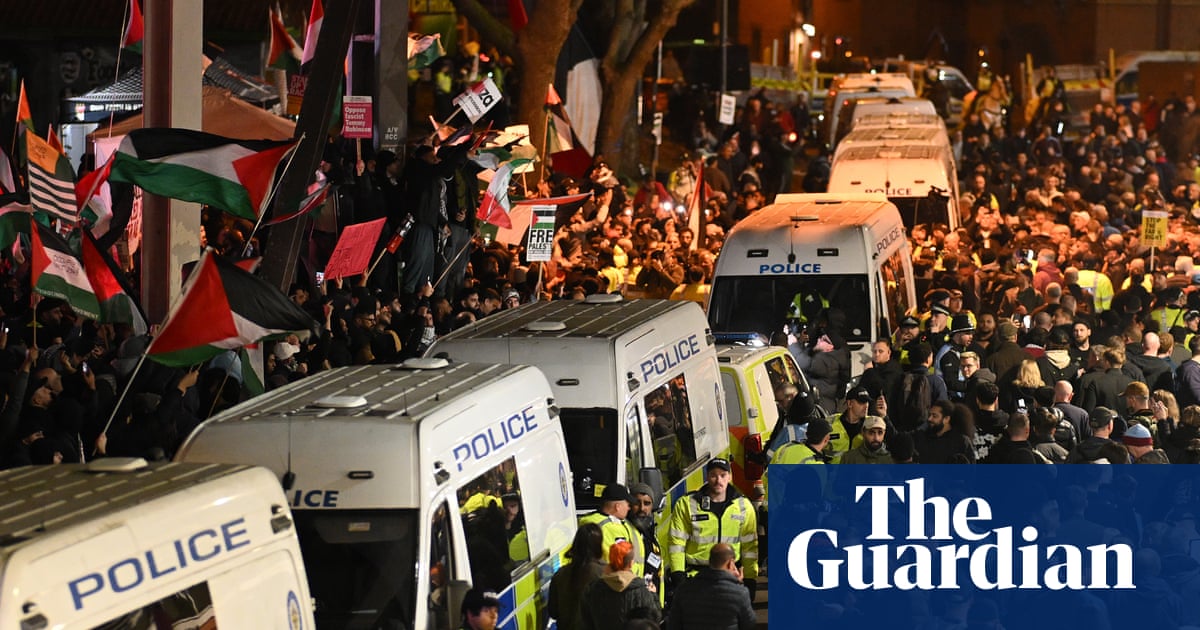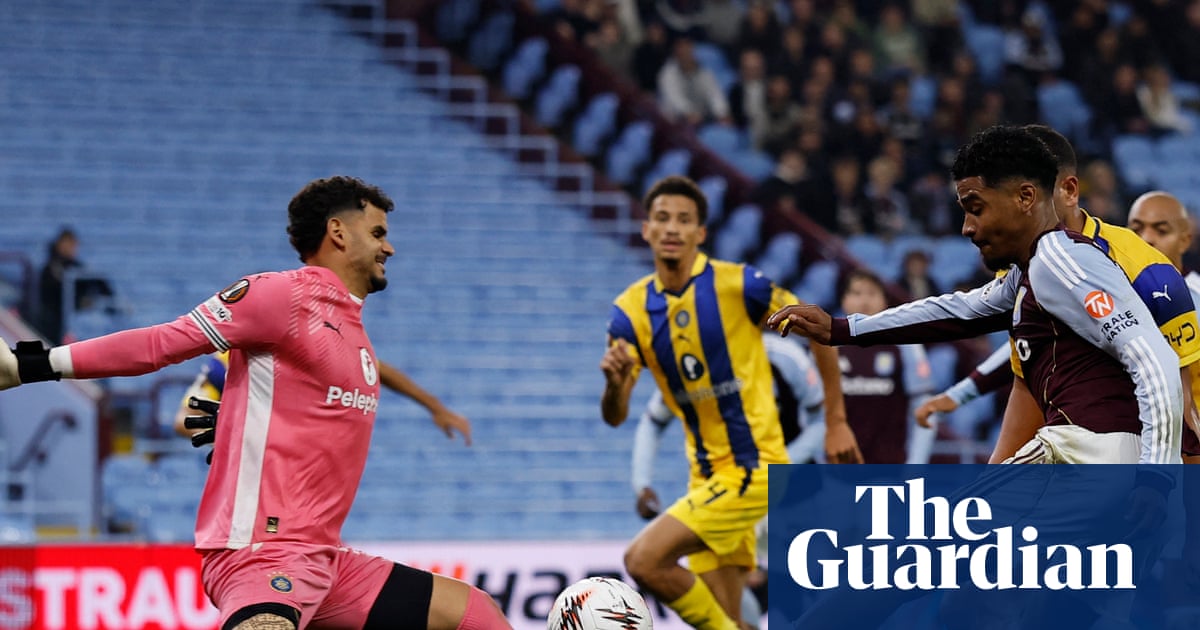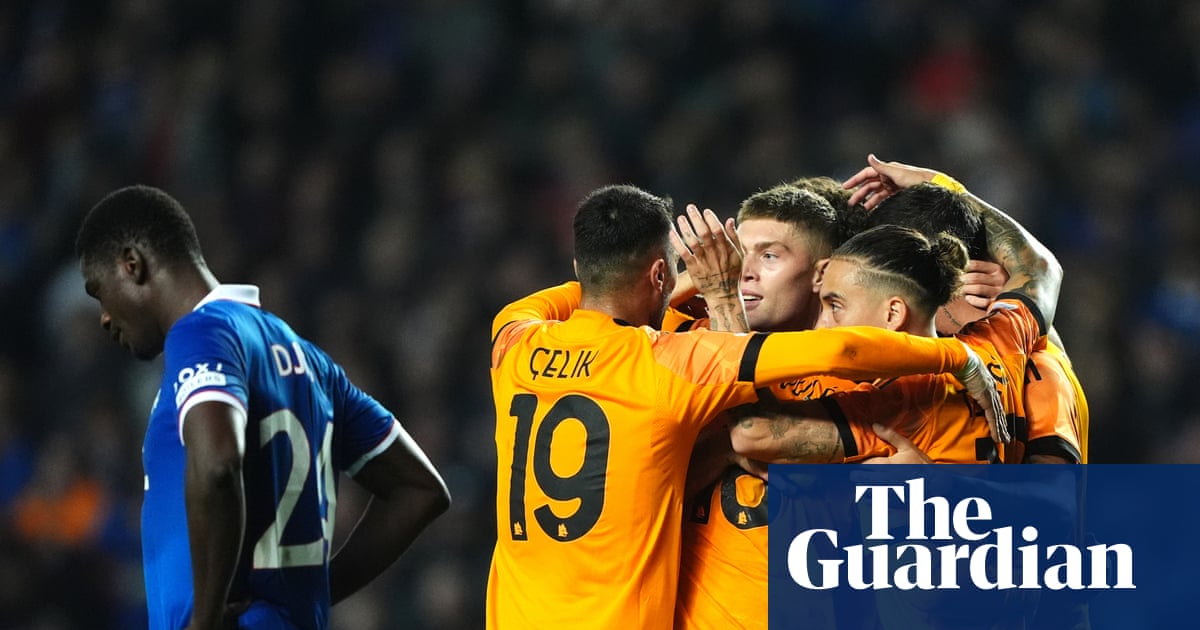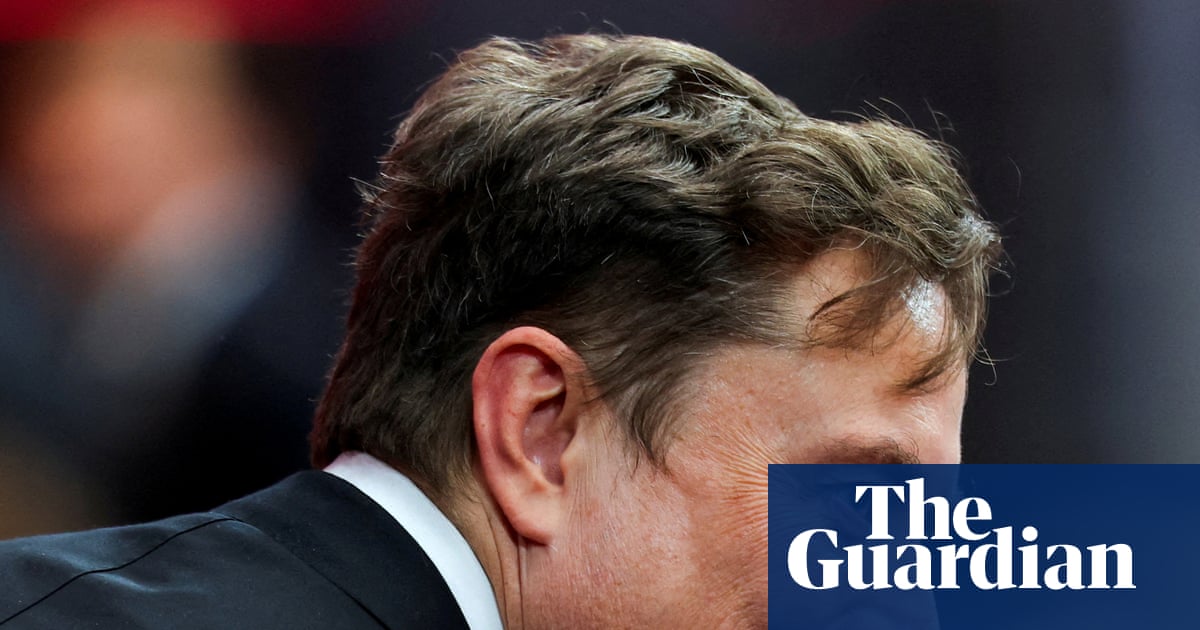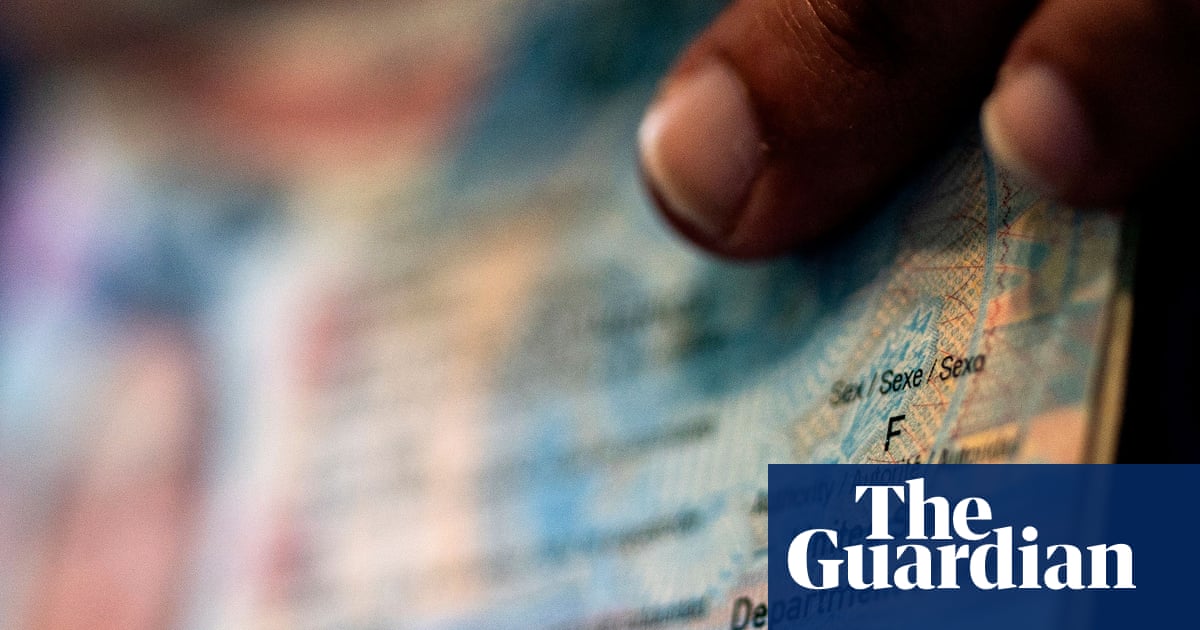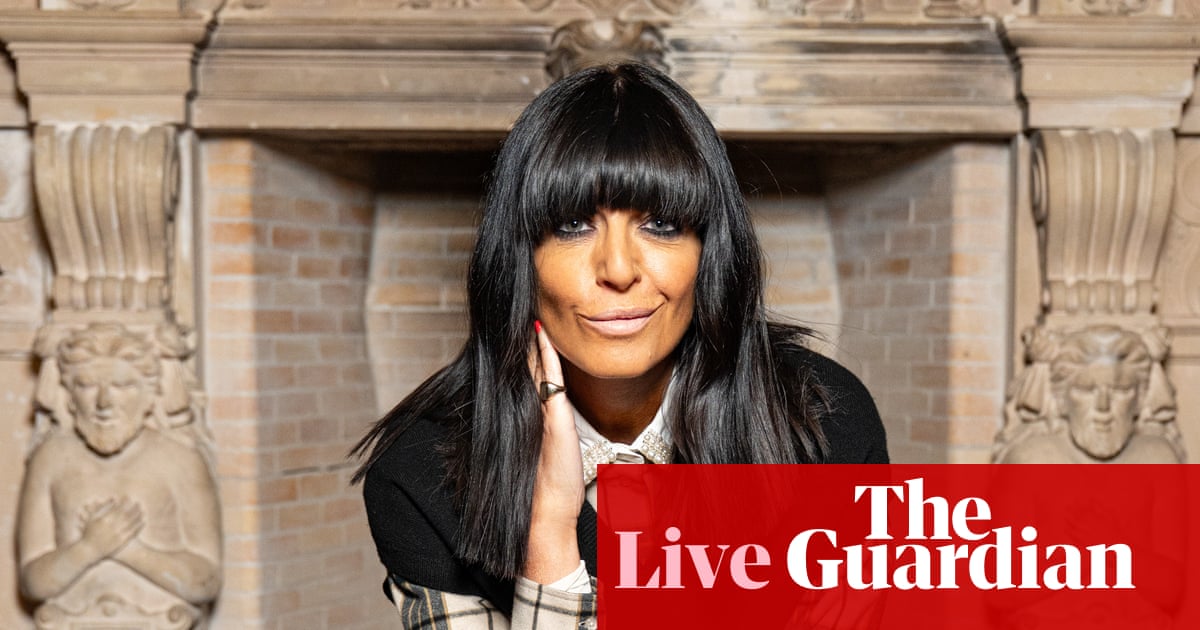

In the past week alone, 100 people have signed up to Majority, a progressive coalition based in the north-east of England that advocates for wealth taxes, public ownership of important utilities and upholding universal human rights.
It may not seem a huge number in a country of 57 million people, but it is part of a bigger picture of grassroots activity on the left that is fuelled by dismay at Labour’s record after a year in government, anger over its perceived targeting of the poorest and most vulnerable with benefits cuts and explosive fury at the relentless killing of people in Gaza.
Almost five years after Jeremy Corbyn was suspended from the Labour party and the left retreated to lick its wounds, there are clear signs of renewed confidence and willingness to take on those standing in the way of their principles and goals.
Leftwing initiatives and coalitions have sprung up. As well as Majority, there is We Deserve Better, set up by the activist and Guardian columnist Owen Jones, who left the Labour party after 24 years, which is raising funds to support alternative candidates; and Collective, a network of campaign groups and individuals led by two of Corbyn’s inner circle, which claims to be the “engine that will drive the formation of a new, mass-membership political party of the left in the UK”.
Independent candidates on the left have done well at national and local elections. Corbyn, who was banned from standing as a Labour candidate in last year’s election, won handsomely as an independent. Four pro-Palestine independents whose campaigns focused on the war in Gaza also beat Labour rivals, and another came close to defeating the Labour star and now health secretary Wes Streeting. The resurgent Greens won four seats.
In last year’s local elections, Jamie Driscoll, who set up Majority after being blocked from standing as a Labour candidate for the mayor of the north-east, came second with a 28% share of the vote. Majority, whose members include Labour, Green and Liberal Democrat activists as well as non-aligned community campaigners, is now aiming to take control of Newcastle city council in next year’s elections. Meanwhile, at least 200 councillors across the country have quit Labour.
And then last week came the left’s biggest move in recent years. Zarah Sultana, the MP for Coventry South who was suspended from Labour after rebelling over the two-child benefit cap, announced she would co-lead a new party with Corbyn. “The time is now,” she said in a post on X.
Two polls suggested the new party could make a mark. More in Common found that 10% of voters would back a Corbyn-led party, rising to almost a third of 18-24-year-olds. According to YouGov, 18% would consider voting for such a party.
Sultana’s announcement came after Keir Starmer faced defeat over his welfare bill when scores of backbench MPs threatened to rebel. Huge concessions ensured the bill was passed, but 47 Labour MPs stood their ground in a significant act of defiance.
This week, more than 100 Labour MPs backed a new group focused on living standards. In a sign of growing activism on the backbenches, they called on party leaders to talk less about the G7 and more about the price of groceries.
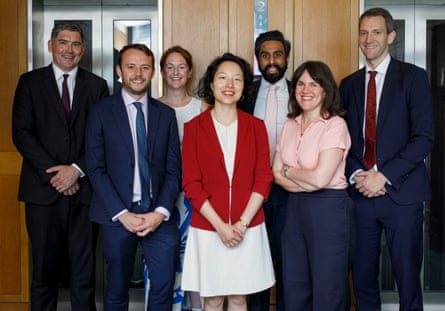
Fractures in Labour’s bedrock were highlighted on Friday when the leftwing union Unite said it was reconsidering its ties with the party over its stance on the long-running Birmingham bin workers’ strike. It also suspended Angela Rayner, the deputy prime minister.
Meanwhile, the Green party is facing an insurgent challenge in its leadership contest from Zack Polanski, an anti-Zionist Jew who advocates radical “eco-populism” targeting billionaires, water companies and corporations.
There is “serious vibrancy” on the left, said Rob Ford, a professor of political science at Manchester University. “The left, far from being dead post-Corbyn, has never been stronger in the form of the Greens and the independents. I would say this move by Corbyn and Sultana is a consequence of the evident desire in parts of the electorate for a leftwing alternative, rather than a driving cause of it.”
Disappointment in the Labour government was a significant factor, but another was the “rapidly changing and fragmenting political landscape” in which voters were rejecting the main political parties. “More than half of the electorate are consistently saying now that they want to vote for somebody other than Labour or the Conservatives – that has never happened before,” said Ford.
“My working assumption is Labour is going to get an absolute hammering next year, from the left and from the right.”
Even so, a long history of rancorous factionalising in leftwing politics could hamper any new party’s chances of success. In the hours after Sultana’s announcement, underlying tensions were exposed.
Some saw Sultana as a bold figurehead, while others were uneasy about formalising leadership roles too soon. Corbyn is said to prefer “consensus politics” and is understood to have leaned toward a looser formation – one that builds on parliamentary independents and grassroots groups rather than a fully-fledged party.
Corbyn’s closest allies were not on board with the timing of Sultana’s announcement. Messages shared afterwards suggest some were caught unaware and had concerns about how it would be interpreted.
Since then, efforts to manage tensions and reconcile the two camps are believed to be in progress, with further meetings planned to re-establish a common position. Some insiders acknowledged “increasingly chaotic” factionalism around the time of Sultana’s announcement, and described current efforts as an attempt to “stabilise the ship” with a unified strategy. Informal discussions about how to chart a path forward could produce a shared position as soon as this weekend, they suggest. Others involved said the whole project could still unravel.
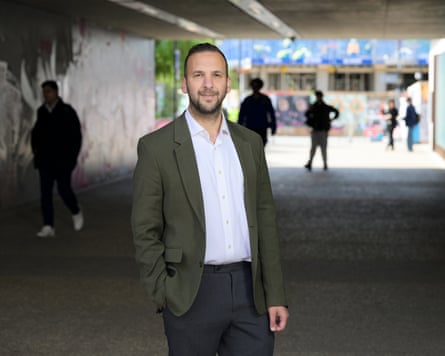
For now, the question of leadership remains unresolved. While Sultana, 31, has long been seen as one of the left’s most visible next-generation figures, some supporters say the project should be built around shared ownership and diffused power, not a single leader.
The veteran leftwing MPs Diane Abbott and John McDonnell are unlikely to be formally involved, in part – it is understood – because of the loose structure being discussed.
For all the internal discord, those involved in the embryonic leftwing party insist the project remains viable. The ambition, they say, is real – and the need, even more so. The past week’s turbulence, in their view, should not be seen as failure but as evidence of how hard it is to capture a rising energy and channel it into one durable, structured form.
Meanwhile, some MPs on the left say that trying to shift Labour leftwards from within is a better strategy than breaking with the party. “We’re still connected to the unions. Labour is an institution. It’s not about individuals,” they said. “Until I’m thrown out or smeared, I’m staying,” said one leftwing MP.
Another figure on the Labour left said the recent rebellions over the government’s welfare bill demonstrated it was possible to wield influence within the party. “These were not just symbolic moves. We’re actually getting policy changed. That matters.”
A new party would not have the reach needed to form a mass political movement, the MP added. “We’re staying in – and encouraging our supporters to stay too. The last fortnight has shown it’s still possible to win change inside Labour. That didn’t feel true a year ago.”
The experience of breakaway parties is not encouraging. In the 1980s, a group of centre-right Labour MPs formed the Social Democratic party, arguing that Labour was too leftwing. Despite high hopes and some early successes, by the end of the decade it had been subsumed into the Liberal party, renamed the Liberal Democrats.
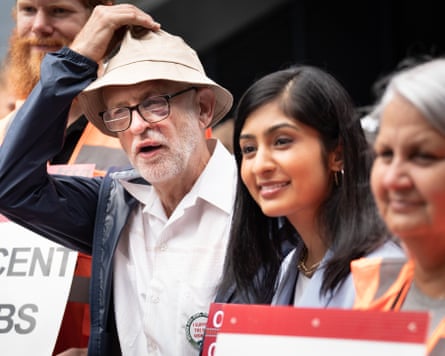
At the other end of the spectrum, the maverick George Galloway formed the hard-left party Respect after he was expelled from Labour in 2003. Respect was in essence a one-man band; Galloway won several elections but the party was dissolved in 2016.
And the challenges are not unique to Britain. In France, Jean-Luc Mélenchon’s Nupes alliance has made electoral gains but remains fragile. In Spain, Podemos surged then splintered. In Germany, Die Linke has lost national coherence, while in Italy and Portugal, left movements have fragmented.
Tensions – over egos, ideology, and institutional pressures – have proved difficult to overcome. The incipient Sultana/Corbyn party “could fall apart before it even begins”, said a senior leftwing Labour MP.
There are also warnings that a rival party on the left of British politics could split the progressive vote and facilitate greater electoral success for Reform UK, the rightwing populist party led by Nigel Farage that has had a huge surge of support over the past year.
A source close to Reform said Farage had long predicted that a hard-left party could win up to 30 seats at the next general election, and said its presence would ultimately help Reform. “I look forward to them standing in every seat across the country and helping deliver a Reform government,” the source said.
A senior Labour MP said the party should not dismiss the risks posed by Reform or a new left alliance – but warned that panic would be the worst response. “If voters don’t feel better off by the next election, if public services are still creaking and small boats keep coming, then of course people will start looking elsewhere,” they said.
“That’s why Labour needs to be relentlessly focused on delivery, and be clear about what we’re doing and why. We don’t win trust by ignoring disillusionment on either flank – we win it by showing we’re serious about fixing the country.”
In the north-east, it is already too late, according to Driscoll. “What people were expecting from the Labour government isn’t what they’ve got – and I’d include Labour MPs in that.
“I estimate that 80% of people support a wealth tax and public ownership of utilities and a block on arms sales to Israel. But they’re also fed up with potholes in the streets.
“They don’t see that anything has got better in the past year, and some are now coming to the conclusion that we’ve got to make change ourselves. It’s time to take back control.”

 3 months ago
86
3 months ago
86

